Home > Best CPUs > CPU Intensive Games
22 of the Most CPU Intensive Games
Welcome to Bottleneck City: These Titles Put More Strain on Your CPU Than Most
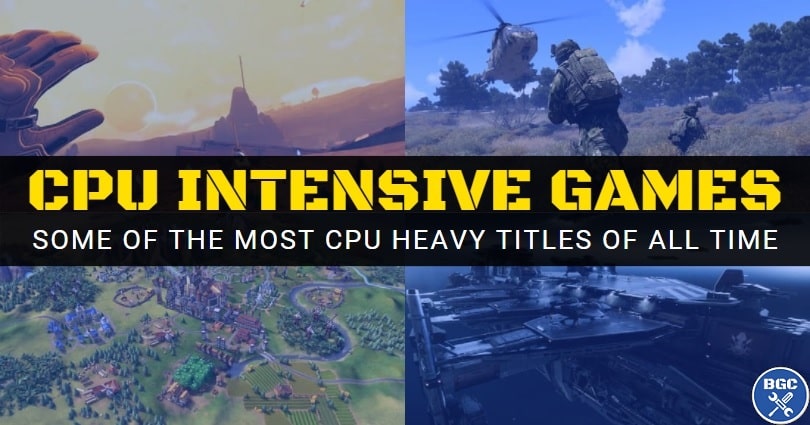
A CPU intensive game is one that contains more real-time CPU processing behind the scenes than the average game on the market, but you could also use the term to describe games that run more CPU processing as compared to GPU processing (ie rendering).
I'd say the more accurate term for the latter would be 'CPU bound' though, meaning that performance in said game is predominantly bound to the power of your CPU. Semantics aside, 'CPU intensive' is a loose term that can mean slightly different things, but overall the theme is the same: these games can seriously hit that CPU hard and can be very unforgiving on weak or older processors.
Related: Best CPUs for Gaming and VR
If building or upgrading a PC with these types of games in mind, instead of the conventional wisdom of getting a significantly stronger GPU than CPU for your setup (which makes sense since most modern games with pretty graphics rely much more on the GPU, especially at 1440p or 4K), you may want to consider a more balanced CPU GPU combination.
In CPU intensive games such as the ones below, if you pair a good GPU with a not-so-good CPU, depending on various factors you may encounter a CPU bottleneck (which means your CPU is "bottlenecking" your GPU from being used to its full potential).
There are various attributes of a game that can contribute to it being more CPU intensive than other titles, including:
- Genre of the game (strategy, MMO, and sims tend to be more CPU heavy)
- Multiplayer games can be CPU heavy (more players means more processing and sending of network code)
- Complexity of gameplay mechanics such as AI and physics (both of which are always processed by the CPU)
- Size and complexity of the game's maps
- Amount of objects, units, or characters on-screen at any one time (CPU has to process any AI/pathfinding and collision detection for each)
- A lack of focus on code optimization on the developer's end
Below I've rounded up some of the most CPU-intensive games on the market right now based on my own research and my own experience in some of these titles. If you're rocking an older CPU - or a cheaper modern model - and you don't get the performance you desire in the following games, chances are the culprit could be your CPU (assuming your GPU is good enough for the game and resolution you're playing at).
If I missed a game you think is worthy to be on the list, let me know at the end, and hope you enjoy the article and perhaps learn something new. Let's get to it, and remember the particular order of this list does not matter as it's impossible to directly rank exactly how CPU intensive a certain game is relative to another.
1. Star Citizen
Simulation games are prime candidates to be CPU intensive games since there is a lot of behind the scenes processing needing to be done to, well, simulate everything in the game to be as life-like as possible. The epic, futuristic space sim Star Citizen is a great example, and some areas of the game can be extremely CPU intensive, so even with a very good graphics card you can quite easily see a CPU bottleneck.
Plus there's the fact it's still under development, meaning that right now as I write this the game is still in early access and is more demanding than it may be in future. The developers have publicly stated that they need to work on CPU optimization, and that CPU bottlenecks are to be expected right now. Star Citizen is not just heavy on the CPU though, and requires one of the best gaming GPUs for flawless performance at 1440p or 4K. Overall, you won't find many games out there more demanding on hardware in general than Star Citizen.
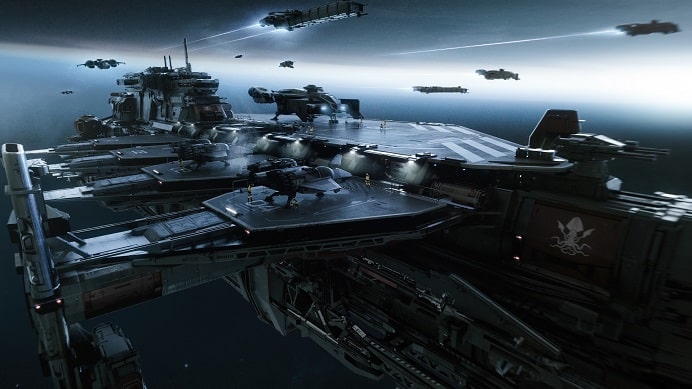
2. ARMA 3
ARMA 3 is an FPS, though open-world seamless sandbox military sim is a lot more precise in describing this somewhat niche of a "game". An anomaly in the sense that it's far from your average FPS, ARMA 3 is also an anomaly in terms of how demanding it is on the CPU relative to other games.
You could be rocking a high-end GPU, but if you're lacking in the CPU department your rig may really struggle, especially in missions with heavy scripting and AI. In more CPU intensive situations within the game, even modern high-end CPUs can struggle to reach a consistent 60FPS, let alone 144FPS.
To get the most of your system with ARMA 3, you have to be willing to extensively tinker with settings, overclock your CPU, and invest in a decent amount of fast, low-latency RAM (and overclock that, too). It goes without saying but the popular ARMA mod DayZ is also very CPU intensive as well.
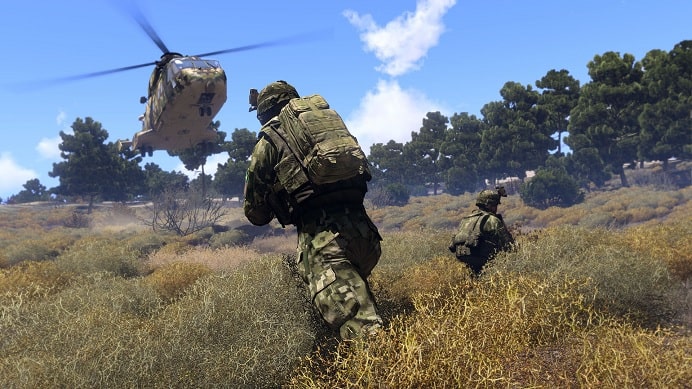 With heavy background processing, ARMA 3 can easily do a number on your poor processor
With heavy background processing, ARMA 3 can easily do a number on your poor processor3. Total War: Warhammer 2
When playing strategy games with large battles and tons of units on-screen, there's a heck of a lot of AI/pathfinding and collision/hit detections to be constantly calculated in real-time. Warhammer 2 - and the whole Total War series for that matter - is well known to wreck your CPU if it's not up to scratch, as the battles in this title can get seriously hectic.
There's a reason its been used extensively in CPU benchmarks over the years, so if this is your favorite game then make sure to properly balance your combination of CPU and GPU to favor the former (especially at 1080p). Jumping from an older CPU to a faster new one can significantly improve performance and remove stuttering/frame drops.
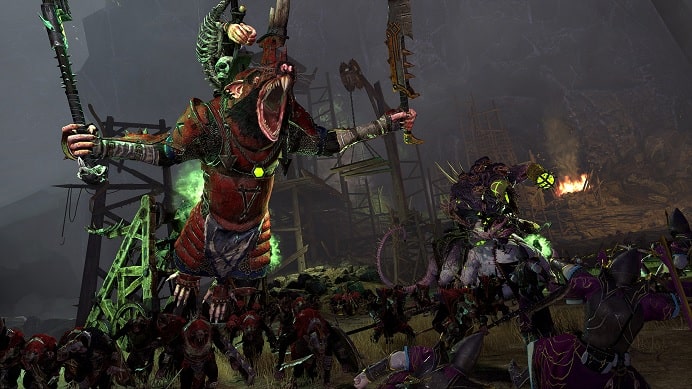
4. Assassin's Creed Odyssey
The Assassin's Creed series, including Odyssey and Origins, is well-known as one of the most demanding gaming series that hits both your CPU and GPU quite hard. The most recent entry in the series, Assassin's Creed Valhalla, is actually slightly less CPU intensive than previous titles like Odyssey and Origins as it uses the latest DirectX 12 rendering API that improves CPU utilization.
5. No Man's Sky (PC or VR)
Large, procedurally generated worlds are calculated on - you guessed it - the CPU. So it doesn't take a genius to guess that No Man's Sky, with its literally infinite real-time generated universe, is going to be a CPU hog. And a CPU hog it certainly is, though make sure to bring a solid GPU to the party as well since the game is demanding in more ways than one. In VR, it's doubly so, requiring nothing but a high-end CPU and GPU combo to avoid performance hiccups.
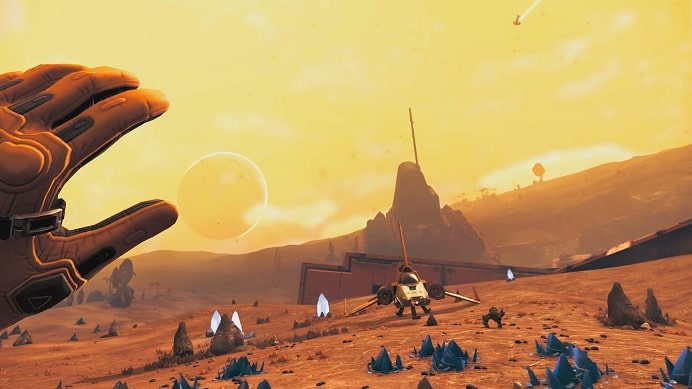
6. Watch Dogs: Legion
You'll need a very good graphics card to run Watch Dogs Legion nicely at very high or ultra settings - especially at 1440p or 4K - but you'll also require a solid CPU as it's one of the most CPU-bound modern games on the market. With older CPUs of generations past, your rig is going to struggle, even if you have a solid GPU. If you want to lower CPU usage to increase FPS, reduce the "Extra Details" first and foremost as it's the most CPU intensive setting. For anyone wondering, the older Watch Dogs 2 is also very CPU intensive.
7. Microsoft Flight Simulator 2020 (PC or VR)
Flight simulators tend to be more demanding on the CPU than your average PC game, and MSFS2020 is absolutely no exception. It doesn't just punch GPUs squarely in the face; it'll simultaneously wreak havoc on any poor processor that's not up to standard. As of 2021, it's easily one of the most demanding games overall, and if you slap on a VR headset to really get into that cockpit with its solid VR mode, your CPU and GPU are only going to get more of a hammering.

8. Far Cry 5
The Far Cry series has always been somewhat CPU intensive, but Far Cry 5 takes it up a notch and along with New Dawn seems to be the most CPU intensive entry in the series as PC Gamer confirms:
"Far Cry 5 proves to be more demanding on the CPU than previous installments in the series, likely due in a large part to the way the AI is constantly throwing 'excitement' at the player".
9. DCS World (PC or VR)
As mentioned earlier, simulations are prime suspects to dish out a good CPU beating, and DCS World is no exception. Especially if you're playing in VR for the ultimate immersive experience, where both your CPU and GPU are further utilized, and where your frame rate aims are naturally higher since the best PC VR headsets have refresh rates of 90Hz or higher (meaning that you need to get 90FPS consistently for the smoothest experience).
10. Boneworks (VR)
When a game has advanced physics interactions, you can probably guess that it'll be a relativley CPU demanding game since all those calculations are done on the CPU. That's exactly the case with Boneworks, the amazing VR experience that boasts the most impressive VR interactions we've seen in a video game yet (yup, even more cool than the pretty epic physics in Half Life Alyx). If you want the best performance in Boneworks, bring a high-end CPU to the party; choppy frame rates in VR are a whole lot more unpleasant than in regular flatscreen games.
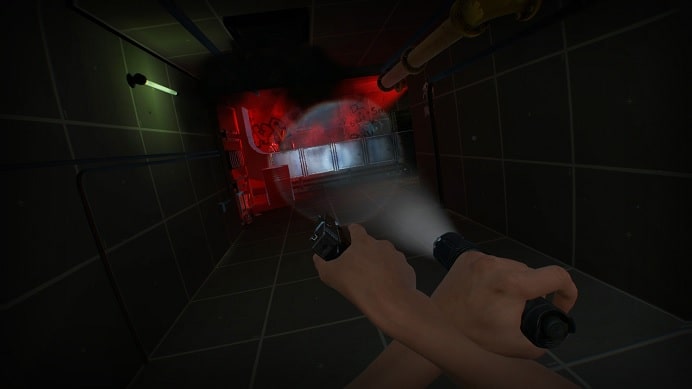
11. Blade and Sorcery (VR)
Another VR gem with super-cool, complex physics interactions that will have you dropping frames and throwing up all over the place in no time should you dare bring a measly i3 or R3 to the show (consistent frame rates are crucial in VR for enjoyment and to avoid motion sickness). Only a Sith deals in absolutes, but it's truly an absolute must to step up your CPU game to at least a modern R5 or i5 (and ideally an R7 or i7) if you want a great, smooth experience in this title.
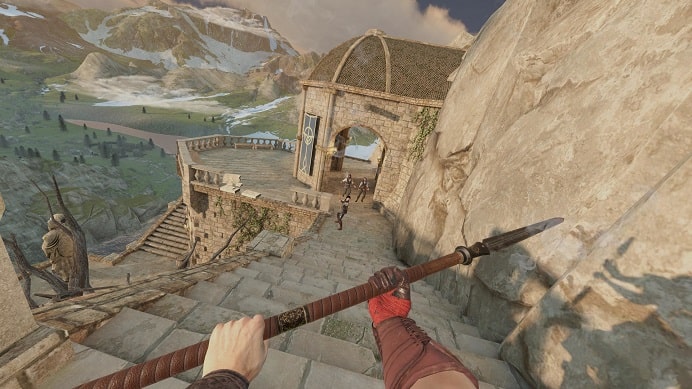
12. Monster Hunter: World
A game often used in benchmarks to test modern CPUs and GPUs, Monster Hunter World will hit both your graphics card and processor quite hard. One of the devs explained why its so CPU intensive game in this forum post:
"To eliminate interstitial loading during active gameplay, MHW loads the entire level into memory. In addition to managing assets loaded into memory, it keeps track of monster interactions, health status, environment/object changes, manages LOD & object culling, calculates collision detection and physics simulation, and tons of other background telemetry stuff that you don't see yet requires CPU cycle".
13. Cities: Skylines
As already said, realistic simulations are often CPU-bound due to all the behind the scenes processing. Cities: Skylines doesn't break that mold, and the SimCity style city-building sim can really give that CPU a good workout once your digital creation develops into a sizeable metropolis with high population and/or traffic counts. I've never played it but I heard it's the best city sim out there to date, though I do fondly remember playing SimCity on the SNES in the late 90's for hours on end as a kid.
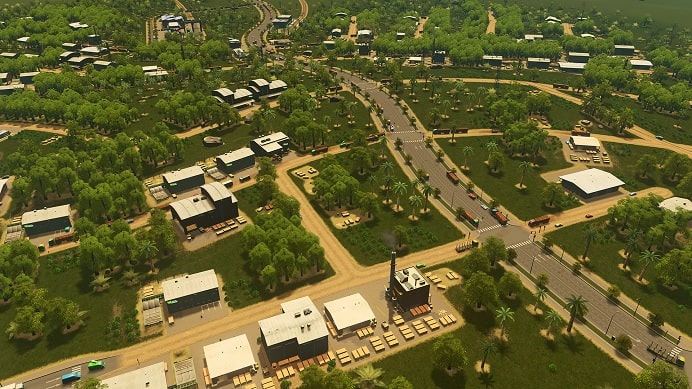
14. Battlefield V
BFV is both CPU and GPU demanding, but its somewhat complex battles with vehicles and firefights aplenty makes it one of the most CPU intensive FPS series going around (especially in a heated multiplayer match with lots of players).
For that reason it'll take a very high-end PC to get 144FPS or thereabouts - the ideal frame rate for the FPS genre to take full advantage of fast 144Hz monitors - but even getting and staying above 60FPS will require something at least half-decent. See the guide to BFV requirements if you need specifics.
15. Cyberpunk 2077
Open-world games are another prime candidate to be processor-punishing piles of code, and Cyberpunk 2077 is exactly that. Cyberpunk 2077 is also very GPU intensive as well, bringing even high-end systems back down to Earth when you're gaming at high res and/or high settings.
Plus, if you run it with succulent ray-tracing turned on, the game becomes a modern "but can it run Crysis?" meme, which by the way also increases work for the CPU (ray tracing doesn't just increase workload of the GPU). If you have a CPU bottleneck in CP2077, to crank out some extra performance make sure to turn down the "Crowd Density" setting under Gameplay Settings as explained in the best Cyberpunk settings guide.
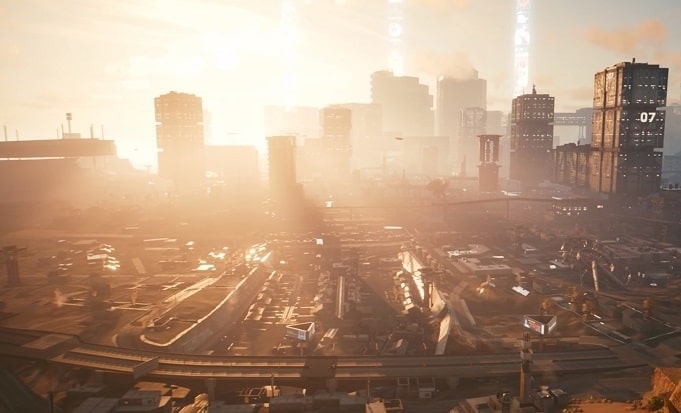
16. Civilization VI
Many strategy games are more CPU-bound than GPU-bound overall, as graphics take a backseat and somewhat complicated multi-unit gameplay makes up the core of the experience.
The most recent entries in the Civilization series, Civilization VI and V, are absolutely no exception and can bring old or slow CPUs to their knees once you progress through the game a little and have a lot happening on-screen.
If your system is struggling, try sticking to smaller maps with less AI players. All that said, the games aren't that CPU intensive when compared to the more modern games on this list, but it's still worth mentioning due to its sheer CPU-bound nature.
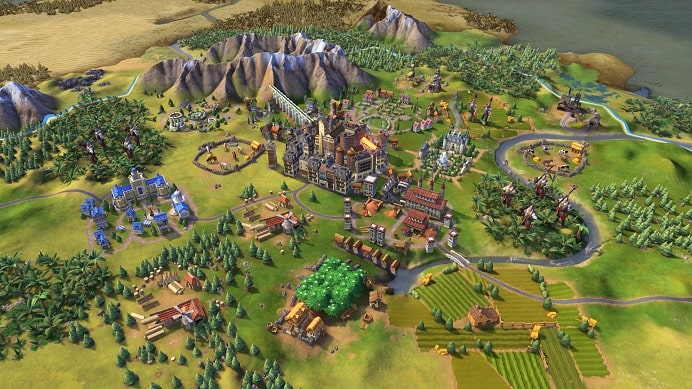
17. World of Warcraft
MMORPGs (Massively Multiplayer Online Role Playing Games) are yet another candidate to be more CPU bound/intensive titles, and WoW doesn't stray from that generalization being a somewhat CPU intensive game. Sure, it's definitely not the most CPU intensive game of all time, but it can definitely hit your processor nicely during more CPU intensive moments such as in dungeons, major cities, during raids, and in PvP.
18. Mods of Half-Life: Alyx (VR)
The main campaign of the greatest VR game of all time (so far) isn't overly CPU intensive, and Valve did an amazing job optimizing it to what seems like the Nth degree (for how good it looks, Alyx runs very well even on mid-range PCs).
But when it comes to the expansive, ever-growing list of mod maps, some of which are full-blown new campaigns with hours of exciting gameplay (and some being literally just as fun as the main game and an absolute must-play), these are mostly created by single developers who may not have either the time nor experience to optimize performance as well as Valve could. And that's where the game can become a whole lot more demanding on your CPU (and yes, your GPU too). Certain mod maps can seriously tank your FPS much more than the main game ever could.
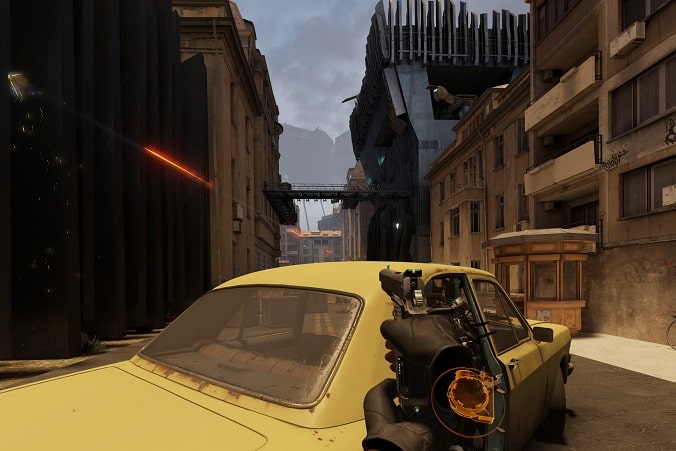
19. Modded Minecraft
Minecraft has always been more CPU-bound than GPU-bound, meaning that performance is tied heavily to how good your processor is. But add on some mods and large worlds and the load on your CPU can increase substantially, though how much of a hit your CPU takes will depend entirely on the specific mod/s in question. Mods that affect crafting, building, item transferring, or quarrying are going to affect the CPU, while shader mods and HD texture packs would hit the GPU (and VRAM) more.
20. Modded Skyrim (PC or VR)
Skyrim without mods ("vanilla" Skyrim) isn't too demanding of a game these days, but that's no way to play the masterpiece in these modern times. Running mods are where it's at, and the more the merrier (you can stack many together). Doing so can quickly add up in workload for your CPU and/or GPU though. Mods that improve visuals will mostly hit your GPU, but mods that add scripts, change combat mechanics, alter NPCs or object counts, or that change object forms can noticeably increase CPU usage.
The ultimate way to play Skyrim these days is its VR version (can confirm it's epic), which adds to GPU usage but also to CPU strain as well. Don't get me wrong - you don't need an i9 or R9 or anything extreme - all I'm saying is when building or upgrading a PC and modded Skyrim is your favorite past time, I'd look to more evenly balance your CPU and GPU combo (but still slightly favor a stronger GPU, especially in VR).
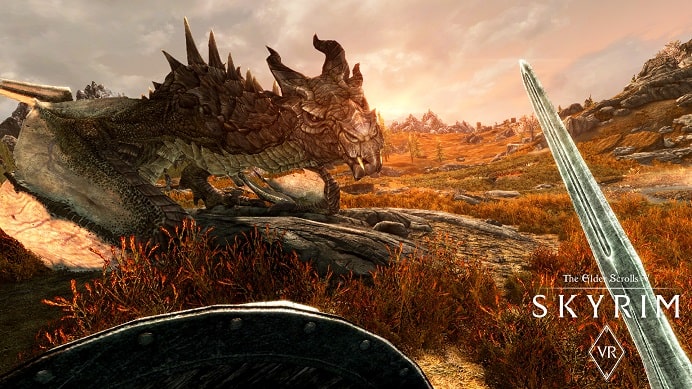
21. Call of Duty: Warzone
Warzone isn't the most CPU intensive game on this list overall, but in a packed online match it can give your processor a fair workout partly because network code (the calculating of player positioning, collisions, hits, and relaying that information between servers/clients) is processed by the CPU.
Warzone supports up to 150 players, which as you can imagine can make things very hectic. Plus, Warzone has huge maps which further adds to CPU workload. In general terms, the bigger the levels or maps in a game, the more your system has to process on the back-end.
Any modern mid-range CPU is more than enough for a consistent 60FPS experience in Warzone, but for more serious players you'll want to eye off some of the best gaming CPUs on the market like the 5600X, 5800X or Intel equivalents if you're a competitive gamer aiming for consistently high frame rates with a 144Hz (or even 240Hz) monitor.
See Also: Build the Best PC for Warzone
22. StarCraft II: Wings of Liberty
StarCraft 2 also isn't the most CPU intensive game of all time relative to some of the heavy hitters mentioned earlier, but it's definitely CPU-bound. Strategy games tend to be that way, as there's a lot of processing to be done for all the individual units during gameplay (especially in multiplayer which further increases CPU load), and the graphics aren't the key focal point.
Getting a consistent 144FPS or higher in StarCraft 2 will take a fairly decent processor as explained in the Starcraft 2 PC build guide, but you won't need anything too crazy for excellent performance since it's such an old game.
Trusted VPN
VPN software can be important in this day and age, especially if you do lots of online banking and/or use public WiFi whilst travelling. Having a VPN adds an extra layer of security to your PC or laptop when online to help protect your data, passwords, financials, etc from hackers or malicious programs. It can also let you access region-locked content (eg US Netflix from overseas). For gamers their can be even more benefits to using a VPN.
Because they're so popular these days, there are countless VPN providers, and it can be confusing to pick one. If you want my 2 cents, after a lot of research I decided on NordVPN 'cause it's one of the fastest, most reliable VPNs for both gaming and general use, with a lot of credible reviews out there backing that up. They also quite often run very solid deals.
Popular Articles (see all)
Search the Site
About the Author (2025 Update)
I'm an indie game developer currently very deep in development on my first public release, a highly-immersive VR spy shooter set in a realistic near-future releasing on Steam when it's ready. The game is partly inspired by some of my favorites of all time including Perfect Dark, MGS1 and 2, HL2, Splinter Cell, KOTOR, and Deus Ex (also movies like SW1-6, The Matrix, Bladerunner, and 5th Element).
Researching, writing, and periodically updating this site helps a little with self-funding the game as I earn a few dollars here and there from Amazon's affiliate program (if you click an Amazon link on this site and buy something, I get a tiny cut of the total sale, at no extra cost to you).
Hope the site helps save you money or frustration when building a PC, and if you want to support the countless hours gone into creating and fine-tuning the many guides and tutorials on the site, besides using my Amazon links if purchasing something, sharing an article on socials or Reddit does help and is much appreciated.

